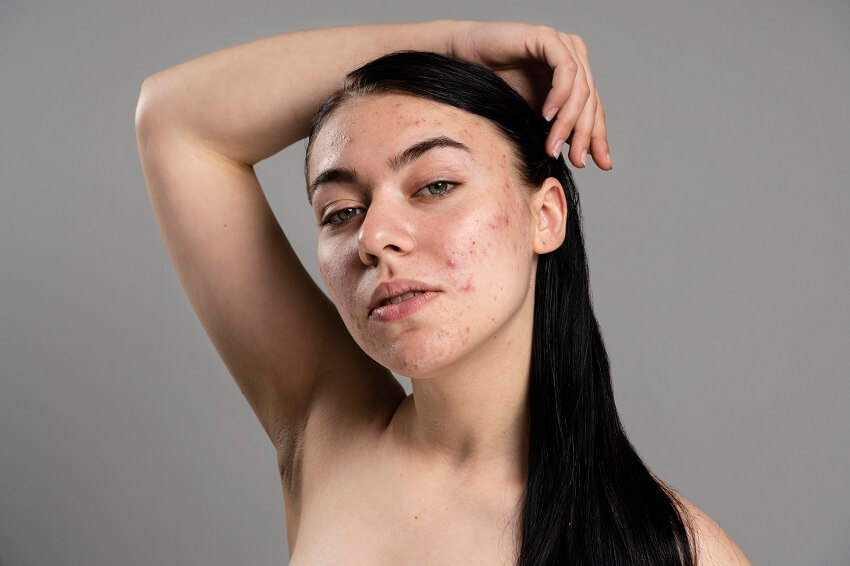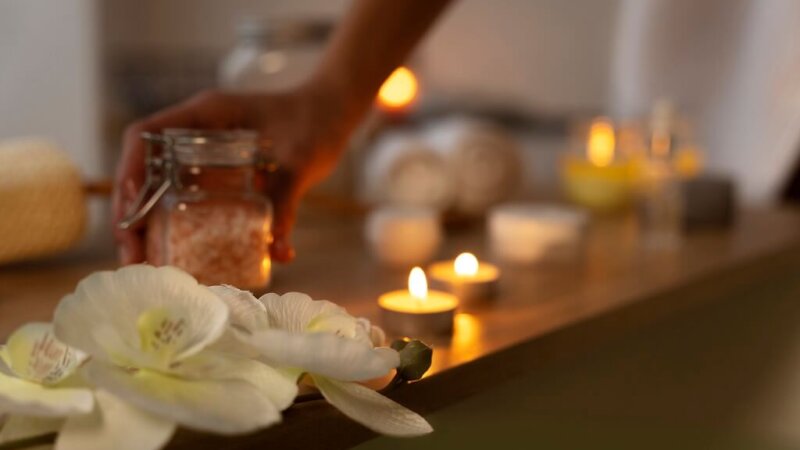How To Deal With Acne on Face?
Acne is the most common skin condition that occurs on the face and the back, and it can have an unpleasant impact on both your appearance and your confidence. Many people suffer from acne and, in order to treat it, they have to make use of one or more of the following: antibiotics, lotions, pills, in-office procedures and even cosmetic makeup.
It is something that has to be dealt with carefully. Because, unlike some of the other skin-related problems, it is not something that just goes away. It is a permanent skin disfigurement and that can have a lot of long-term effects on your life. That is why it is important to deal with it well, and that is why this blog is being written but If you are looking for perfect skin then we recommend you to seek a dermatologist for acne treatment & you might be able to achieve the skin that you’ve always wanted.
The purpose of this blog is to discuss a few different ways of dealing with acne.
- Excess sebum can lead to acne breakouts.
- Keep your skin clean but avoid over-washing your skin.
- Use a gentle cleanser that is specifically designed for the face, and try to avoid bar soaps.
- Use a good face scrub to exfoliate your skin at least once a week.
- Don’t touch your face. This could spread bacteria and do more harm than good.
- Use sunscreen with SPF 30 or higher.
- Use a mild toner to minimize irritation.
- Use a moisturizer and not an astringent for the face.
- Drink plenty of water to keep skin hydrated.
Keep your skin clean but avoid over-washing your skin
One of the most effective ways to have clean skin is to wash your face regularly. Products like facial wash and exfoliating scrubs can help clear away oil and dead skin cells. A good amount of soap to wash your face with is about a dime’s size or two. Depending on your skin type, avoid products that are meant for other skin types or with harsh chemicals like salicylic acid. Over-washing your skin can lead to breakouts and excess oil production!
Use a gentle cleanser that is specifically designed for the face, and try to avoid bar soaps
It’s true that bar soap can create a great lather and is inexpensive. But it’s actually one of the main causes of acne breakouts. It leaves a residue on skin and can clog pores, creating blackheads, whiteheads, and inflamed breakouts. The best cleanser for acne prone skin is always a gentle cleanser that is specifically designed for the face and doesn’t leave a residue on skin.
Use a good face scrub to exfoliate your skin at least once a week
Exfoliating your skin helps your skin get rid of dead cells that can get clogged in your pores and cause acne. While some people think that more is better, exfoliating too much can do more harm than good. Use a scrub no more than once a week; you should never scrub more than 2 or 3 times a week. Always rinse your face after using a facial scrub, and the best time to do this is in the morning, as this will help your skin start the day fresh and clean.
Don’t touch your face. This could spread bacteria and do more harm than good
Don’t touch your face is a common phrase, but if you have acne don’t touch your face is becoming a panic-inducing statement. One of the most common triggers for acne is touching your face. By touching your face, you can introduce bacteria to your pores. While acne is not caused by dirt by itself, it’s the combination of dirt and bacteria that causes acne. By touching your face, you can force bacteria deeper into the pores, causing more irritation and making the problem worse. Instead, try applying any drying agents to your skin before you touch it.
Use sunscreen with SPF 30 or higher
Using sunscreen with SPF 30 or higher can help prevent skin damage, including wrinkles and sunburn. Wearing sunscreen is especially important if you have acne, which can increase your risk of skin cancer. Acne can be caused by a variety of factors, and sunscreen is just one way to combat all of the ways you can get acne.
Trial is a great way to test products out. For example, if you want to see if a facial cleanser is working for your skin, try using it for a couple of weeks before buying the whole bottle. You can also try a range of different products to see which ones work the best for you. There’s no better time to start than now!
Use a mild toner to minimize irritation
For people with sensitive skin, it’s important to use mild toners. Toners are used to clean the skin and remove dirt and excess oil. However, some people with acne can be irritated by the ingredients found in many conventional toners and treatments. More specifically, people with irritation from acne should avoid ingredients like salicylic acid, sulfur, and alcohol. If you have sensitive skin, you should find a toner that contains non-irritating ingredients such as aloe vera & green tea.
Quality, natural ingredients and a soothing formula will ensure that your face feels relaxed while it soaks up the benefits of the treatment.
Use a moisturizer and not an astringent for the face
Many people are under the assumption that astringents are effective at removing acne. However, this is simply not true. Astringents are effective at drying the skin, which can exacerbate and make acne worse. A moisturizer will help with this without drying out your skin, allowing your skin to breathe and clear up acne. You can also read about how to remove tan from face in this post.
Drink plenty of water to keep skin hydrated
While it isn’t surprising that dry skin can lead to acne, many people do not realize how crucial water is to the skin. Water is crucial for producing oil and keeping it from getting too oily. It also helps your skin get rid of dead skin cells and other irritants that could lead to acne. Drinking plenty of water can help promote clear, healthy skin.
-Drink at least 8 glasses (64 ounces) of water each day.
-Drink water before meals to help hydrate your body and digest food.
Conclusion
Everyone’s skin is different. Some people are blessed with a clear, smooth complexion, while others inherit a few acne scars that never seem to go away. Those who are prone to acne often find themselves struggling with cystic acne. It’s best to visit a dermatologist to treat acne scars. We all want perfect skin, but keep in mind that you shouldn’t be overly obsessed with achieving it. Few things are perfect, and that includes your skin.







